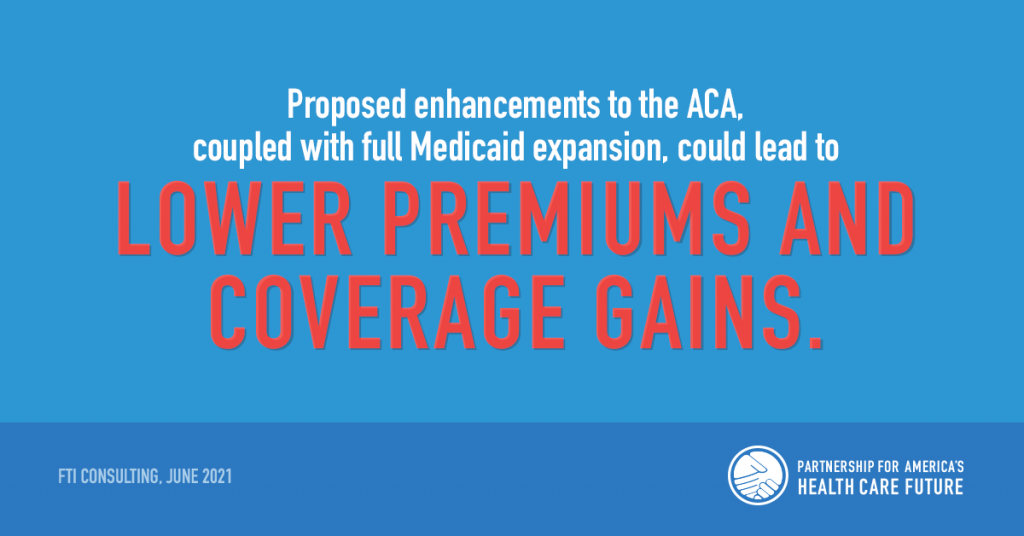New research from FTI Consulting, supported by the Partnership for America’s Health Care Future, reveals that proposed Affordable Care Act (ACA) enhancements, coupled with full Medicaid expansion, could lead to lower premiums and substantial coverage gains while preserving competition in the market and protecting choice for American consumers. In contrast, creating the public option could threaten private coverage and reduce choice for consumers while creating financial challenges for health care providers who could suddenly face an influx of patients on government plans with unsustainable reimbursement rates, the analysis finds.

THE FACTS:
- ACA enhancements could reduce net premiums by 24 percent on average, saving consumers approximately $10.6 billion annually.
- These changes could reduce the national uninsured rate by 1.5 percentage points.
- Medicaid expansion, a foundational component of the ACA, remains one of the most effective ways that states can reduce their uninsured rates. If the remaining 12 states were to expand Medicaid, more than 1.76 million individuals could become newly insured, reducing the national uninsured rate by 0.5 percentage points.
- The introduction of ACA enhancements combined with Medicaid expansion could decrease the U.S. uninsured rate by 2.1 percentage points.
- In contrast, creating the public option could threaten private coverage, driving 60 million people – or 40 percent of the market – out of employer-sponsored insurance (ESI) and potentially eliminating the private exchange market entirely.
- Implementing ACA enhancements and expanding Medicaid in the 12 non-expansion states could result in comparable coverage gains among vulnerable populations compared to the public option – and do so without threatening private coverage.
- Relative to specialized Medicaid managed care plans that prioritize care coordination and address social determinants of health, the public option may not provide the coverage necessary to meet the unique health care needs of at-risk, low-income populations.
THE TRUTH:
This analysis provides further evidence that, when it comes to what’s next in health care, lawmakers should focus on building on and improving what’s working, not starting over by creating an unaffordable, new government-controlled health insurance system such as the public option. The public option and other new government-controlled health insurance systems come with higher costs and negative consequences. At a time when Americans are depending on access to affordable, high-quality health coverage and care more than ever, let’s build on and improve what’s working, not start over.